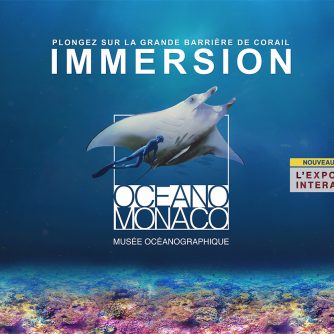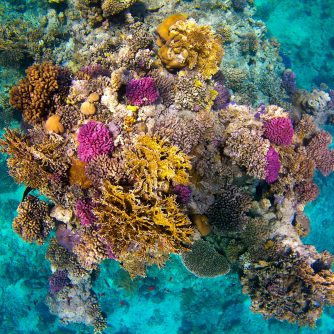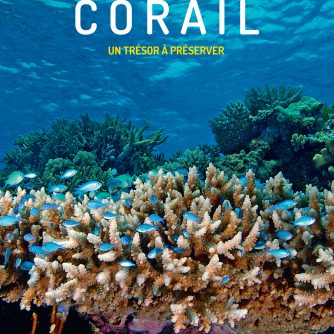The Odyssey of Sea Turtles - The exhibition
MARTIN COLOGNOLI - CORAL GUARDIAN
- Home
- Actualités
- Coral Guardian Photo Exhibition

The Coral Guardian association exhibits the coral at the Oceanographic Museum of Monaco
The CORAIL photographic exhibition allows us to discover the remarkable story of traditional Indonesian fishermen, from the small island of Serava Besar off the west coast of the island of Flores, protecting and restoring the destroyed ecosystem on which they directly depend for their livelihood: the coral reef. This island is located in the centre of the Coral Triangle, the epicentre of the planet’s marine biodiversity . 6 million km², 76% of the coral species, and 56% of the coral reef fish in the Indo-Pacific region. It has more biodiversity than anywhere else in the world.
The CORAIL photographic exhibition will run from June 20, 2020 to January 3, 2022.
Martin Colognoli
In 2012, Martin Colognoli, a marine biologist, co-founded Coral Guardian, a French non-profit association under the 1901 law. Coral Guardian is dedicated to the conservation of coral ecosystems thanks to the local communities that depend on them, to raise awareness and to participate in scientific discoveries.
Survivors from the dinosaur era
More than twenty large-format images immerse visitors in the fragile world of coral reefs, highlighting the harmony between humans and nature: a message that is both urgent and full of hope.
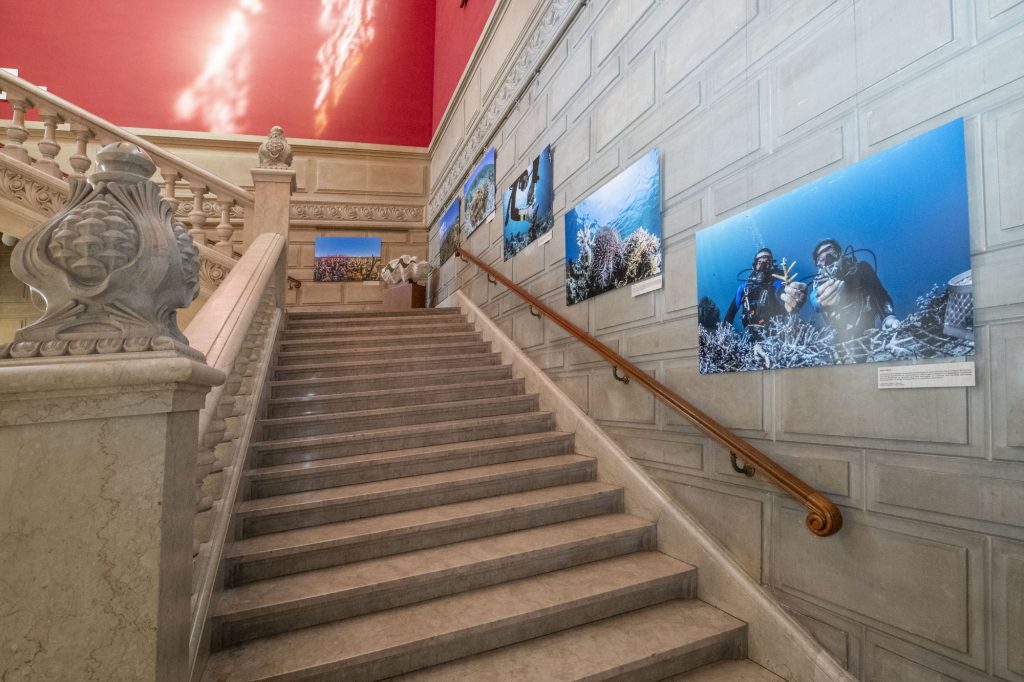
You tell me, I forget. You teach me, I remember. You involve me, I learn.
Benjamin Franklin.
Serial killers
Coral Guardian is distinguished by the development of concrete actions of reef restoration on the ground involving local populations. Through its actions, the association has acquired a unique experience in the field. The involvement of the people who depend directly on these ecosystems has allowed the creation of a sustainable restoration model based on science and practice. Indeed, the commitment of the main stakeholders is a key factor for success. The projects then have a lasting and concrete impact on the situation of the communities, who take ownership of them.
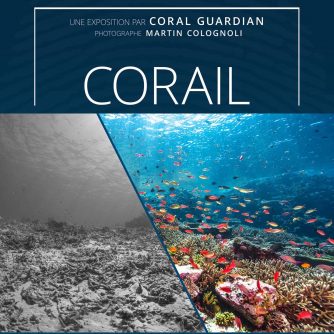
We are the solution
Rising water temperatures, sea levels and ocean acidity (effects of climate change) are threatening coral reefs around the world. Scientists estimate that we could lose up to 70% of the world’s coral reefs in the next 50 years. Overfishing and highly destructive fishing techniques, such as bomb fishing and cyanide, are responsible for depleting fish stocks to a level that may be irreversible. Despite the growing threats, there is hope. The reefs of the Coral Triangle have survived for millions of years and some species are coping surprisingly well with the effects of climate change. This is why the Coral Triangle holds secrets that raise hope among scientists. The greatest source of hope for the Coral Triangle is its people who depend on it so heavily.
To be discovered in the staircase of the Princess-Alice Hall...
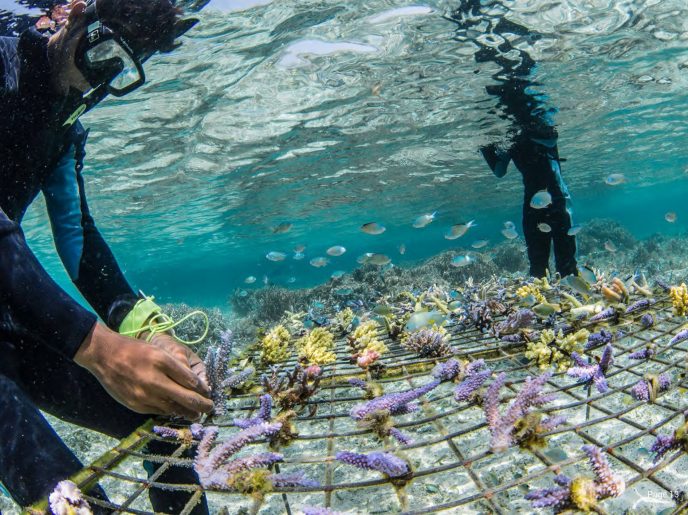
The team is in the midst of transplantation. The coral colonies are fragmented and then firmly attached to the metal support. One month later, these corals will have, thanks to their calcareous skeleton, enveloped the structure to fix themselves and will then begin their growth towards the sun.
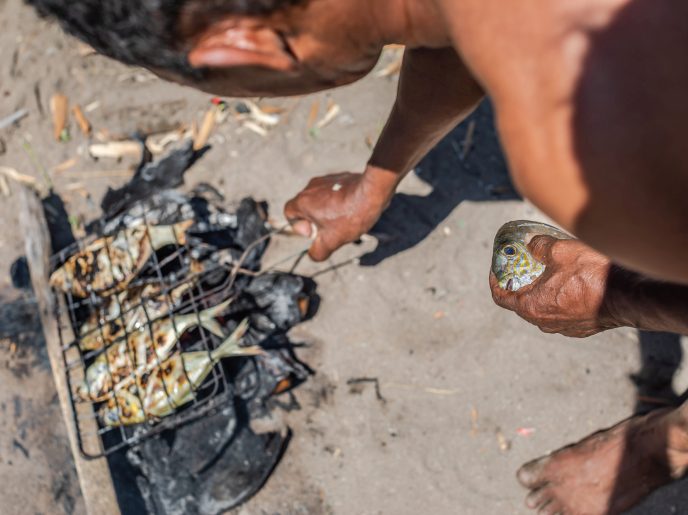
In this island fishing village, fish is the main source of protein. The average consumption is 4 to 5 kilos per day to feed a family. The fish species consumed are mostly dependent on the coral reef.
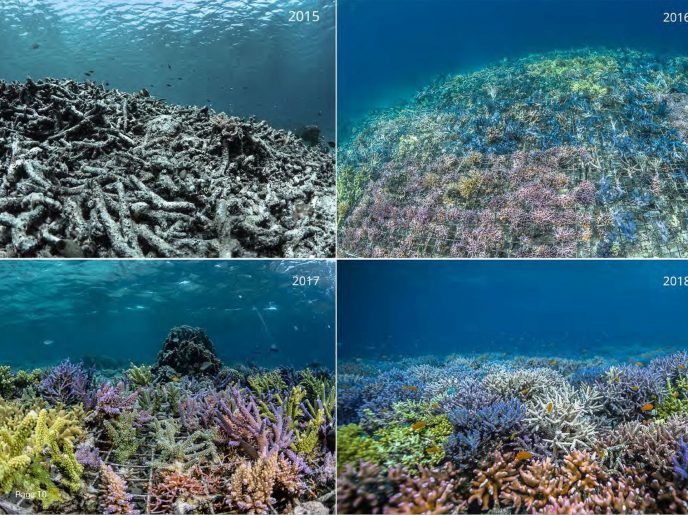
The evolution of an area restored in just three years. This is a perfect illustration of the return of the coral reef to an area where the bottom is constantly moving. These structures provide solid support for transplanted colonies. The environmental conditions are favourable for the return of life.




